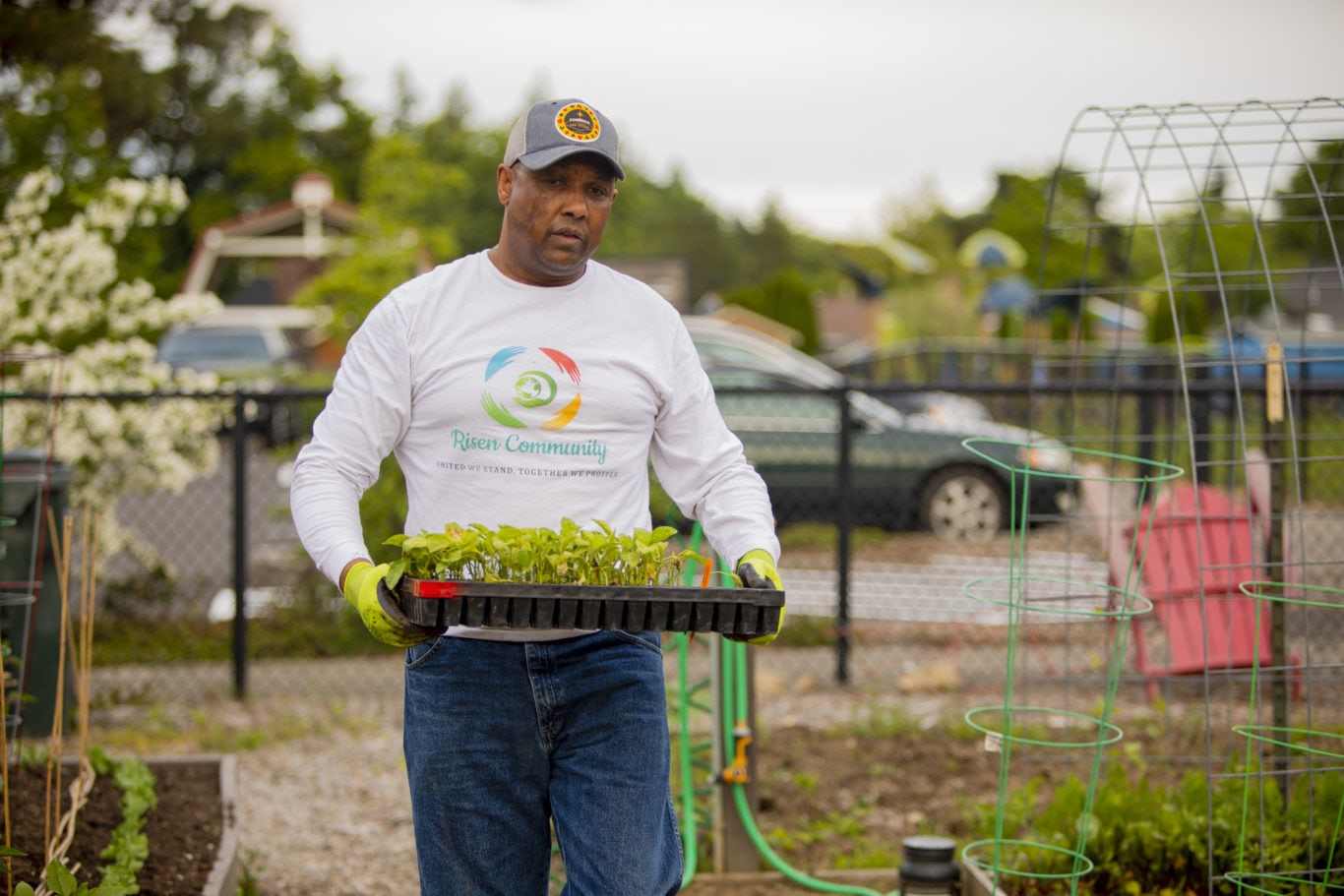Hunger and Humanity: Connecting Food Justice and Systemic Racism
Hunger and Humanity: Connecting Food Justice and Systemic Racism
Hunger and Humanity: Connecting Food Justice and Systemic Racism
The most significant root cause of hunger is poverty. And poverty, itself, is driven by a host of systems and structures, with racism and other forms of discrimination at the top. This means racial justice work is anti-hunger work; anti-hunger work is racial justice work. We can’t successfully pursue one without the other.
The symptoms of systemic racism know many names: Police violence. Mass incarceration. Health inequities. Poverty. Hunger. We see the undeniable evidence and effects of these injustices every day in our work at Oregon Food Bank — especially in the disproportionate impact of food insecurity in communities of color throughout Oregon and Southwest Washington.
We believe that everyone should have the opportunity to thrive and contribute to our communities. That means we must address the policies and systems that drive hunger and poverty among communities of color. Furthermore, we must learn from and atone for historic genocide and generational trauma in communities of color that have been driven by White Supremacy and colonialism. In our efforts to move toward a more equitable existence for all, we commit to educating and encouraging activism at the local, state and national levels to make lasting change.
Systemic Racism + Hunger in Oregon
Oregon’s history is rooted in systemic racism, from the founding of our state as a “white utopia” through a series of Black exclusionary laws. Since the inception of Oregon’s statehood, the state constitution barred Black families from owning a home, voting or accessing the legal system. Today, BIPOC (Black, Indigenous and all People of Color) communities face disproportionate hunger and poverty in every corner of the state.
Recent reporting shows that the effects of COVID-19 continue to fall hardest on Black communities here in Oregon, with only 39 percent of Black Oregonians reporting that they had enough to eat the previous week (Willamette Week).
Indigenous communities experience continued disproportionate rates of hunger and poverty due to a long history of genocide and colonialism that are operationalized through harmful federal policies. In a pre-COVID-19 study of Native American Tribes in northern California and southern Oregon, it was revealed that 92 percent of households lacked access to enough good, nutritious, culturally-appropriate food. (Feeding America)
We can end hunger for good by tackling its root causes. We must act to address the systemic racism across our region that drives hunger and poverty.
Learn More
- Oregon Food Bank's Equity & Racial Justice Statement
- Identifying Racism in the Drivers of Food Insecurity
- Black Liberation and Food Justice
- Juneteenth Acknowledges Struggle, Perseverance of Black Americans
- Indigenous and Black Communities Find Common Cause for Land Justice - Yes! Magazine
Resources
Support community-based organizations near you:
